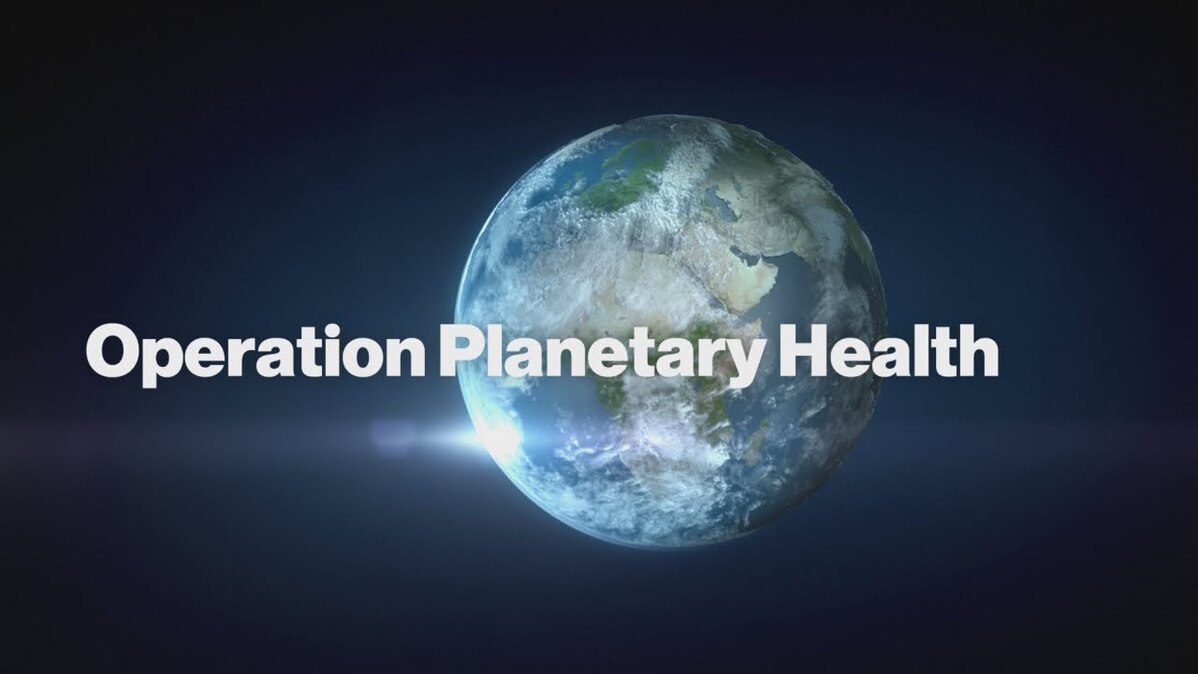Sharing hope
While the warnings from experts are stark, the Caucus highlighted an important message: there is still time to act. Although the health of the planet is at a tipping point, there is a clear opportunity to make the changes needed to improve planetary health, and many reasons to feel hopeful about the future.
Kate Robertson, co-founder of One Young World, stressed that we need to work together as a global community to make a difference – whether as individuals or large international corporations. "Sustainability is not an option, it’s not a silo, it’s not something to put on the side. We’re either all in on sustainability or all bets are off,” she said.
We know some of the steps we can take as individuals to reduce our impact on the environment – using less plastic, recycling our waste, reducing our water consumption – but what about big businesses? What can they do?
Discussing how large corporations can put environmental sustainability into action, Steffen Lang, Global Head of Novartis Technical Operations (NTO), described some of the steps that have been taken in the manufacturing and supply of medicines, which have been transforming the Company’s environmental impact.
“Each of us has the responsibility to do the right thing. Our goal is to make our manufacturing sites as self-sufficient as possible, creating their own energy, reusing and recycling waste, and optimizing wastewater treatment technology to reuse water as much as possible,” he commented. “In addition to our own operations, we also have a responsibility to look at the entire breadth of our value chain when considering our impact on the environment. We are therefore collaborating actively with our suppliers and onboarding them on our sustainability journey.”
Inspiring Change
Being aware of the impact our actions have on the planet is one thing; inspiring people to create a path to a better and more sustainable future is a different challenge altogether. How do we encourage ourselves and others to make changes to our daily lives that will reduce our environmental impact and create a future in which both people and the environment can thrive?
At Novartis, Operation Planetary Health is designed to give employees an opportunity to take action. It was born out of a desire to raise awareness about environmental sustainability and create a movement to accelerate change within the organization. It is aligned with our current sustainability strategy, and focusses specifically on the three environmental issues where we believe we can make the greatest progress in achieving our targets: carbon emissions (Scope 3); circular economy; and emerging issues.
James Goudreau, Head of Climate at Novartis spoke passionately about reducing scope 3 carbon emissions – the indirect carbon emissions in our value/supply chain that are a consequence of our operations, but not directly owned or controlled by Novartis. He commented: “Around 20-30% of our carbon footprint is related to our own operations, but 70-80% comes from all those business interactions across the value chain, so in addition to our own behaviors, we have to think of those of others too.” Addressing the scale of the problem, he said: “The carbon levels in the atmosphere are currently 418 parts per million; the safe level is 350 parts per million. That level of carbon will drive rapidly accelerating rates of change and contribute to a global health crisis. As a global health company we have a responsibility to act and we can’t afford to wait. The actions we take today can change tomorrow.”
The circular economy, where we seek to find loops in our value chains to re-use materials, packaging and transport to optimize and eliminate waste, is a top priority for Elisabet Pellicer Rubio, a Waste Technology Engineer at Novartis. She explained that the company has a total of 65 projects underway reducing over 2,800 tons of waste in total, but also noted that we can do much more, stating that we all need to try to reduce, reuse and recycle the materials we use.
Angelique Pouponneau, CEO of the Seychelles’ Conservation and Climate Adaptation Trust and OYW Ambassador, talked to delegates about less well-known emerging environmental issues. In other words, future threats such as water scarcity and loss of biodiversity. “Currently, our legacy would be an ocean depleted of fish but full of plastics, trees cut to the ground but factories erected, and livestock just to ensure we enjoy that Friday night burger,” she warned.

 VIDEO
VIDEO